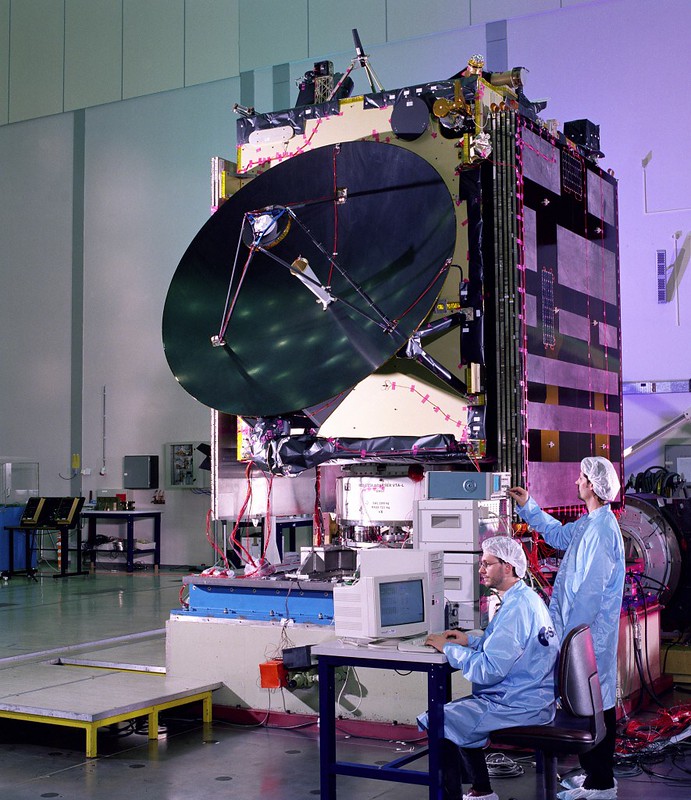
Thought for the day: Why do we explore space?
A friend asked me a very reasonable question in a post from yesterday on Facebook, about the Rosetta project to land an experiment package on a comet, I gave a quick answer in the comments section, but I think this is such a valid question it deserves a much fuller answer.
Here is my perspective on the subject.
Reasons for Space Exploration
Advocates of space exploration often get asked the question: “Why should we spend money on space exploration when there are so many problems here on Earth?”
Here are a few reasons that space exploration is a worthwhile endeavour.
1. Perspective – As our telescopes probe the depths of space and time and our spacecraft missions reveal the scale and diversity of worlds even within our own solar system, we are provided with a humbling sense of our place in the universe.
2. Protecting and Understanding our World -
NASA’s Earth Science division helps us understand the fantastically complex world that we live on.
Studying other worlds like Venus and Mars teaches us how special our planet is, and provides sobering examples of how the climates of planets can change.
NASA-funded research scans the skies for dangerous asteroids, and missions to asteroids teach us how we might be able to divert them from a collision course, should the need arise.
3. Inspiration – The Apollo missions inspired an entire generation of students to pursue math and science careers. As our society becomes more technology-dependent, the populace needs to become scientifically literate to keep up. Telling students that “You could be the first astronaut on Mars!” or “You could be the one driving the next Mars rovers!” is a pretty effective way of inspiring them to study science and math.
4. The Economy - NASA does not launch buckets of cash into space. The majority of the money spent on space exploration goes toward the salaries of thousands of skilled American workers who make NASA’s missions so successful.
5. Exploration – To be human is to be an explorer. It is part of who we are: since the first tribes left the African savanna and spread into Europe and Asia, we have had the need to explore the unknown. Now humans have visited or settled every corner of the globe. The instinct to explore is still active, but there are very few outlets. Some people seek out extreme or exotic places to satisfy this need, risking their lives to do so. Others look to the skies. It may be an old cliche, but Star Trek had it right: Space is the final frontier, and it calls to the explorer in all of us.
6. New Technology - Space exploration brings together a lot of smart people from many different fields and puts them to work on some very difficult problems. The result is not only fantastic scientific discoveries, but also many useful inventions. From healthier baby food to technology to better diagnose breast cancer, to farther flying golf balls, NASA technology is all around you. Check here for an extensive list.
7. Answering The Big Questions – How did life begin? How did the universe begin? How was our world created? Are we alone? These questions and others have been asked by every generation since the dawn of time. That we can even ask them is a testament to the power of the human brain. Now, because we are smart enough and bold enough to explore the universe, we are finding the answers. In the words of Carl Sagan, “We are starstuff contemplating the stars.”
8. International Collaboration – Large space exploration projects are almost always the result of international cooperation. The International Space Station is the most obvious example, but the space shuttle regularly has astronauts from other nations, and many robotic missions include instruments built by teams in other countries. As NASA gears up to return to the moon, precursor missions from Japan, India, China and Russia are already in orbit, are planned, or are under construction. Future human Mars missions will almost certainly involve multiple space agencies to spread the cost among several nations.
9. Long-term Survival – As it stands, all of humanity’s eggs are in one small basket called “Earth”. It is only a matter of time before something happens to our planet that is so devastating that it changes the course of life as we know it. Whether the disaster is natural, like a rogue comet, or self-inflicted, like nuclear war, it is possible that our home will no longer be habitable. What happens, then, to all of the accomplishments of the last thousand generations of humans? All of our art, our music, our literature, our science, even our very genes could be wiped out. Unless, of course, there are a few humans living elsewhere in the solar system. Space exploration and colonization of the Moon and Mars are an insurance policy for humanity and all of our achievements.
(I have not included references but this post pulls together work from many other people and strictly speaking should be referenced.)


